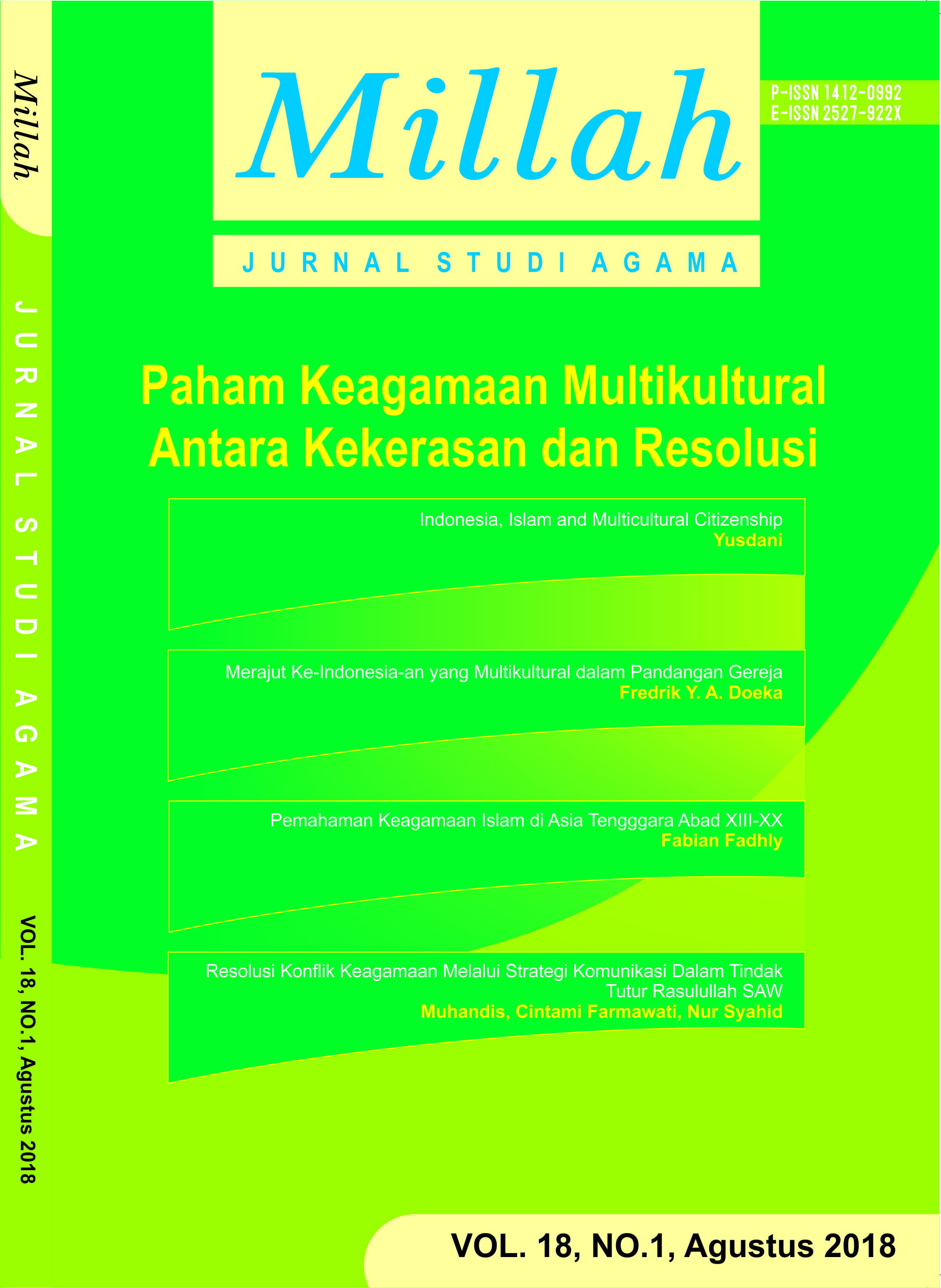Main Article Content
Abstract
The following article discusses that in fact from the beginning Indonesia was designed as a common home for all citizen of the nation. These differences, for instances religions, races, ethnicities, gender, beliefs, social classes, and opinions constitute the realities in society, nation and state of Indonesia. Those are protected by the constitution and Pancasila as a collective consensus. However, to realize the multicultural Indonesia in the reform era faces obstacles and stumbling blocks in three levels, namely the level of discourse, the level of legislation and the level of application in public life. This is the homework that needs to be completed with the nation’s citizenship. However, Indonesian people remain optimistic about the future because the Indonesian nation is a nation that has a strong social cohesiveness. To reach Indonesia a prosperous and multicultural nation, Indonesian Islamic thought is required to always be critical and innovative and responsive to new developments in the life of nation and state. There are still many stumbling blocks of exams that continue to confront at all times in the long journey towards a more just and prosperous nation and state life. With the concept of accommodative multicultural citizenship, Muslims and other people as civil society are expected to encourage the state to be fair in providing protection, security and public services to all components of the nation.
Article Details
How to Cite
Yusdani, Y. (2018). Indonesia, Islam and Multicultural Citizenship. Millah: Journal of Religious Studies, 18(1), 1–14. https://doi.org/10.20885/millah.vol18.iss1.art1




